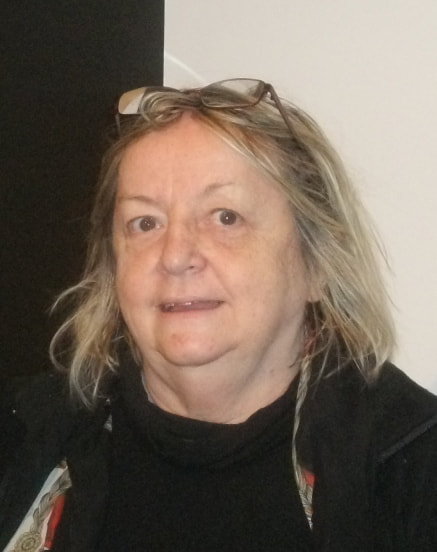Claire Bowditch - ‘your own kind a of girl – a memoir – The stories we tell ourselves and what happens when we believe them’ Allan and Unwin 2019
Melbourne born and raised, Clare Bowditch is a best-selling and Award Winning musician, actor, former ABC broadcaster and teacher.
‘Your own kind of girl’ was chosen for me as a Christmas gift by my sister, perhaps thinking the lesson shared with others, a characteristic of memoir, would be relevant to me. I had seen Clare Bowditch on Rockwiz and knew that she was a highly regarded singer song writer, but that was all really. I always read my Christmas books straight away and found I couldn’t put 'your own kind of girl' down, reading it over two days during the festive season break.
Clare’s memoir focus is reflected in the subtitle ‘The stories we tell ourselves and what happens when we believe them’, however I've expanded it to … ‘The stories we tell ourselves which can lead to anxiety and depression, where these stories may have come from, what happens when we believe them, and how we can recover from them’.
There were many ‘universal themes’ in the memoir, particularly grief (unresolved grief and loss); anxiety and depression; but also love of music; creativity; family connectedness; being perceived as different as a child; finding a soul mate; heart break; and more.
“A memoir is about a lesson learned that can be shared with others” … Claire describes the lesson she hopes to share ... 'that no matter how far up the garden path your anxiety has dragged you, recovery is absolutely and completely possible’
Claire is trying to reach people who have unresolved ‘underlying’ issues, particularly unresolved grief, which have led to anxiety and depression. Perhaps she is also targeting family members and friends who are trying to understand and support a person who has anxiety and depression.
On the first page, Claire writes that, at aged 21, she had promised herself ‘I would one day be brave enough, and well enough, and alive enough', to write her story. Her motivation - to provide hope and help for other people who have experienced a ‘nervous breakdown’, or as a counsellor encouraged her to reframe it, as a ‘nervous breakthrough’…
In terms of angle taken to interest and benefit readers, Claire made effective use of a ‘life stage’ time-line approach, tracking the source of her unresolved grief - the death as a child of her dearest, next in age older sister - through its impact on her during the life stage tasks of childhood, adolescence and adulthood, tasks she tried to negotiate with energy and such determination, but often found difficult to manage emotionally. Claire also wove in other difficulties she faced at different stages of life development, being taller, larger than other children her age, which compounded her sensitivities and the telling of her story.
Clair's use of life stage transition sequencing resonated with me, perhaps because as social worker I had learnt, and in practice found, that unresolved issues tended to make life stage transitions more difficult for the people I worked with.
Another element Claire drew upon was to use phrases, or short verses, from her songs to title and preface each chapter, with some of her songs, capturing as they often did a ‘universal truth’ facing her at the time, featuring more fully in a particular chapter.
The ‘life stage’ time-line and Claire's undoubted skills in story telling took me into so many worlds I identified with – the emotional ups and downs of experiencing the world of the Children’s Hospital as a child; of playing netball in later childhood and early adolescence; of falling in love; of travelling overseas in early adulthood, and more.
Claire is a wonderful storyteller – from her portrayal of her loved sister Rowena was beautiful and believable, she developed the characters of her parents so thoughtfully and I came to understand them as people of such wisdom and integrity. Her lovers were also fascinatingly portrayed, as was the dawning realization that the friend she had had for so many years was the person she wanted to be with so beautifully spelled out. Her capacity to describe settings, social climates, time periods, social norms and expectations infused the memoir with context and meaning.
‘Plot?’ Claire's use of a time line trajectory in which the unresolved issues emerged, played out, were resolved to enable her to move on with her life’s journey, worked very well. Literary elements – that’s for another day!
Claire described waiting twenty years after her breakdown before she felt ready to write the book, ‘Your Own Kind of Girl’ and in the acknowledgements wrote , ‘My friends warned me that it would be hard, but I found it … quite hard. At a couple of points, I even wondered whether – twenty years from now - I might have cause to write a second book about the breakdown brought on by writing this book’.
When I finished reading ‘Your Own Kind of Girl’ I felt so glad, indeed privileged, to have read it. Although my story is not quite the same, or quite as devastating in terms of breakdown, in my early forties I eventually asked for help for anxiety and depression for which it turned out there were underlying issues which had affected my negotiating life stages to a greater or lesser degree. I would love to have been able to read ‘Your Own Kind of Girl’ as a young woman, to have benefited from reading about her journey, to draw on her encouragement to not be afraid to seek help. I am so glad it is available for young women to read!
Bev Lee
April 2021


